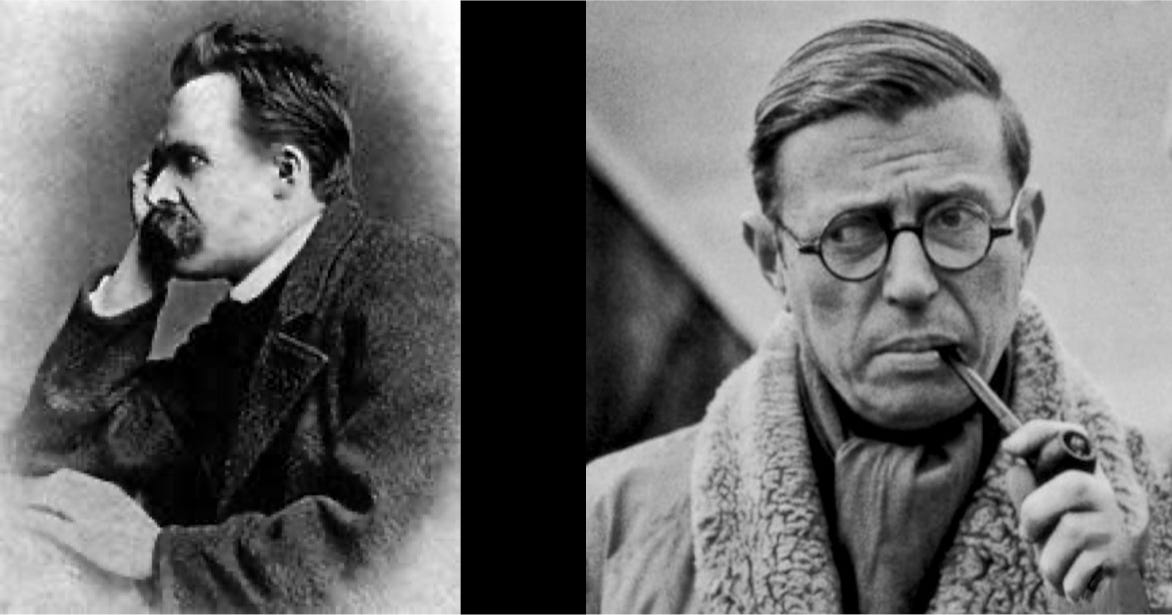Nietzsche and Sartre on Authenticity
Friedrich Nietzsche asks and answers, “What does your consciousness say? You should become the person you are.” (Nietzsche, S 69). I would always find it strange to be the self and yet, not be able to know the self, to reflect on myself and see but a mystery, a vessel to fill and spill. Now, I understand that the fundamental basis of the self, of what we are, is a thing that can become anything, and we are always in a state of becoming; however, authenticity seems to go beyond oneself. For Nietzsche, as a nihilist, he sees no truth to life, only interpretations of truth. Nonetheless, Nietzsche derives authenticity from nowhere else but in life, not beyond it, as in an afterlife or an apprehending God. Furthermore, in order to establish our authenticity, we must not abide by the common ideology of society, we should go against the herd mentality. Where we should abide for our authenticity is in what Nietzsche describes as our “will to power”. He also provides a sort of method of how we can be aware of our inauthenticity by what he calls “On Eternal Recurrence”. Nietzsche, however, views humans as an evolutionary progress and to continue our evolution we need to become something more than just human, we need to become the übermensch. As for Jean Paul-Sartre, he tells us that in order to live authentically, we are not to lie about our own facticity and not shy away from our transcendence. He also states that, in many ways, we are shaped by others, and so, they are also a part of our authenticity. For Sartre, in order to act authentically we must be sincere to who we are and not act in bad faith, meaning inauthentically. In being authentic, both Nietzsche and Sartre, affirm that we are free to take charge of our lives, to transcend that of the herd and the environment, though however, Nietzsche reckons we are to push the bounds towards the übermensch.
To wake up in life and be consciously aware of what we are and that of what we are in, all we ever do is interpret. Each individual can posit his/her own truth of life, but in reality, behind it all, there really is no truth in life, only our interpretations of it. As Nietzsche says, “No, fact is precisely what there is not, only interpretations” (Nietzsche, S 96). Nietzsche tells us that we only put forth a truth or a meaning towards life because that is an inner desire we conscious humans have. As Nietzsche states, “Truth is the kind of error without which a certain species of life could not live. The value for life is ultimately decisive” (Nietzsche, S 95). We are free to decide whatever truths we want, but he believes they are all made of the human conscious of that witch we invent. That being said, Nietzsche believes that the only truth in life is
Keep reading with a 7-day free trial
Subscribe to Eye of Horus to keep reading this post and get 7 days of free access to the full post archives.



